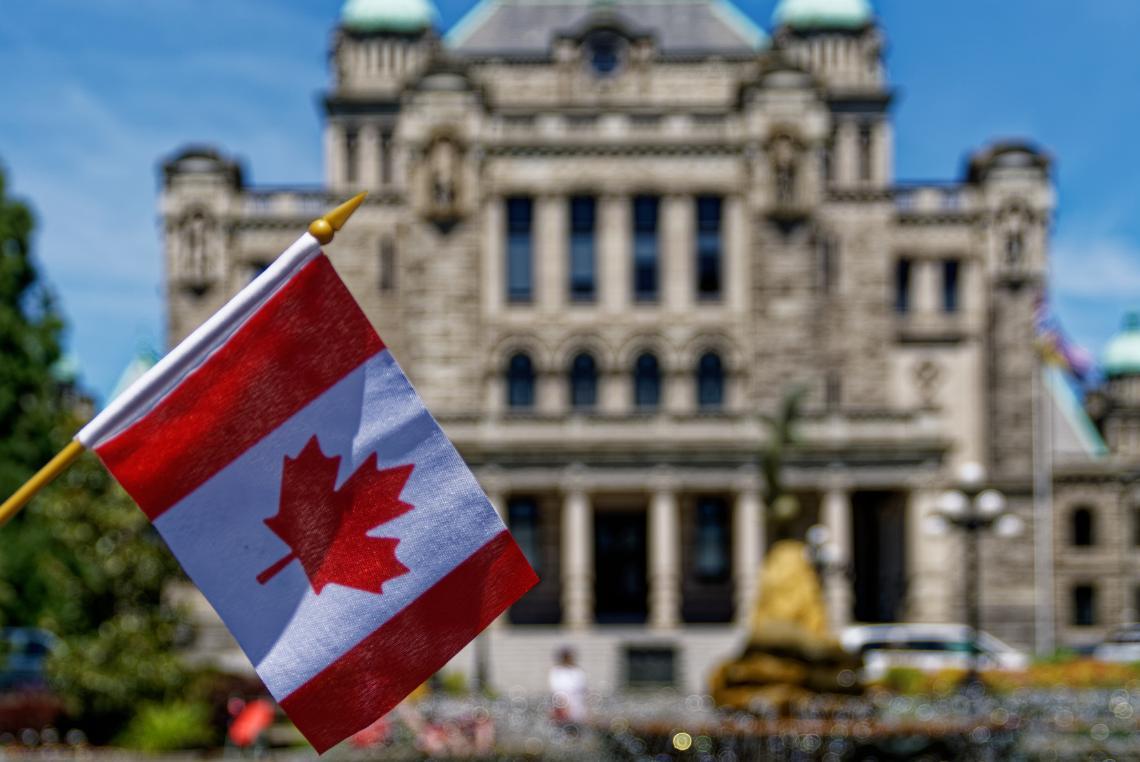Cost of Living in Canada for International Students

For Indian students planning to pursue higher education in Canada, understanding the cost of living is paramount. It entails grasping the various expenses they will encounter, such as accommodation, food, transportation, healthcare, utilities, and more. By comprehensively understanding these financial aspects, students can effectively budget, explore available financial aid options, and make informed decisions regarding their choice of institution and lifestyle adjustments. Moreover, a thorough understanding of the cost of living facilitates a smoother transition to the Canadian environment, reducing potential financial stressors and allowing students to focus on academic and cultural pursuits.
In this article, we aim to provide valuable insights and practical tips tailored to Indian students, aiding them in navigating the intricacies of the cost of living in Canada. From anayzing accommodation options to understanding transportation costs and healthcare provisions, the goal is to equip Indian students with the necessary knowledge to optimize their financial planning and enhance their overall experience as international scholars in Canada.
What is the Cost of Living in Canada?
The cost of living in Canada refers to the total expenses required to maintain a certain standard of living in the country, covering essential needs such as housing, food, transportation, healthcare, and other everyday expenditures. This metric varies significantly across different regions and cities within Canada, with urban centres generally commanding higher living costs compared to rural areas. Factors like housing availability, transportation infrastructure, and local economic conditions contribute to these disparities. Moreover, individual lifestyle choices and preferences also play a significant role in shaping the cost of living, as students may opt for varying levels of accommodation, dining, and recreational activities, further impacting their overall expenses. Understanding these factors is crucial for Indian students planning to study in Canada, as it enables them to make informed decisions and devise effective financial plans tailored to their needs and circumstances.
When assessing the cost of living in Canada, it's essential to consider the diverse range of expenses that contribute to one's overall budget. Beyond necessities like rent and groceries, students must also account for additional costs such as transportation, healthcare, utilities, and discretionary spending on entertainment and social activities. Additionally, fluctuations in currency exchange rates and inflation can influence living expenses over time. By carefully evaluating these factors and researching specific costs in their desired study destinations, Indian students can better anticipate and manage their financial obligations while studying abroad. Planning and adopting a realistic approach to budgeting will ultimately contribute to a more fulfilling and sustainable experience during their time in Canada.
Average Living Expenses in Canada for International Students
Monthly Cost of Living in Canada for International Students
International students studying in Canada should anticipate various monthly living expenses to ensure financial preparedness throughout their academic journey. While costs can vary depending on factors like location, lifestyle, and individual preferences, the following provides an approximate breakdown of average monthly expenses:
-
Accommodation: Renting accommodations is a significant expense for international students. Depending on the city and type of housing, monthly rent can range from CAD 600 to CAD 1500 for shared apartments or dormitories. Homestay options may fall within a similar range, providing students with room and board in a host family's home.
-
Food: Monthly grocery expenses typically range from CAD 200 to CAD 400, accounting for meals prepared at home. Dining out occasionally may incur additional costs, depending on personal preferences.
-
Transportation: Public transportation fares vary by city but generally amount to approximately CAD 75 to CAD 150 per month. Students may also opt for occasional taxi rides or ride-sharing services, adding to transportation expenses.
-
Healthcare: Health insurance coverage is mandatory for international students in Canada. Depending on the province and coverage options, health insurance premiums may range from CAD 600 to CAD 1000 annually.
-
Utilities: Utilities like electricity, heating, water, and internet services may be included in the rent or billed separately. On average, utilities can amount to approximately CAD 100 to CAD 200 per month.
-
Miscellaneous Expenses: Miscellaneous expenses, including phone bills, entertainment, personal care items, and discretionary spending, may total around CAD 200 to CAD 400 per month.
These estimates provide a general overview of the monthly living expenses that international students can expect while studying in Canada. However, students should conduct thorough research and consider their specific circumstances to create a comprehensive budget that accounts for all necessary expenditures. Effective financial planning will contribute to a smooth and fulfilling experience during their time as students in Canada.
Cost of Living in Canada for Families & Students
When international students are accompanied by family members, particularly spouses or children, additional financial considerations come into play. Beyond the standard living expenses for students, families must account for the needs and welfare of all members. Here are some key financial considerations for international students with families in Canada:
-
Accommodation: Housing needs expand when families accompany international students. Larger living spaces or multiple bedrooms are necessary to accommodate spouses and children. Consequently, monthly rent or housing costs are typically higher compared to single students. Families may opt for rental apartments, townhouses, or condominiums, which can significantly increase housing expenses.
-
Education: If international students have school-aged children, they must consider the cost of education. This includes tuition fees for international students' children attending Canadian schools, as well as expenses for books, school supplies, uniforms, and extracurricular activities. Private schooling may be an option, but it can substantially increase educational expenses.
-
Healthcare: In addition to health insurance for themselves, international students with families must ensure coverage for their spouses and children. Health insurance premiums for family members can significantly contribute to monthly living expenses. Furthermore, families may incur additional healthcare costs for routine check-ups, vaccinations, and other medical needs.
-
Childcare: International students with young children may require childcare services while attending classes or working part-time. The cost of daycare or babysitting can be considerable, particularly in urban areas. Families should budget for childcare expenses to ensure the well-being and supervision of their children during their absence.
Food and Other Expenses: With more mouths to feed, food expenses for families are higher compared to single students. Groceries, dining out, and other household essentials contribute to monthly expenditures. Families must also budget for other miscellaneous expenses, including transportation, utilities, personal care items, and entertainment, to maintain a comfortable standard of living.
Overall, international students with families in Canada face unique financial challenges compared to single students. Effective financial planning, budgeting, and exploring available resources and support systems can help alleviate the financial burden and ensure a positive experience for both students and their families during their time in Canada.
How much money is required to live comfortably in Canada?
The amount of money required to live comfortably in Canada varies depending on several factors, including the individual's location, lifestyle preferences, family size, and personal circumstances. While there is no one-size-fits-all answer, guiding the approximate amount needed to maintain a comfortable standard of living can help individuals plan their finances effectively. Here's a breakdown of key expenses to consider:
-
Housing: Rent or mortgage payments typically represent the largest portion of living expenses. In major cities like Toronto or Vancouver, rental costs can be higher compared to smaller cities or rural areas. As a general guideline, individuals may allocate approximately 30% to 40% of their monthly income towards housing expenses.
-
Food: Grocery expenses can vary depending on dietary preferences, family size, and eating habits. Individuals may budget between CAD 200 to CAD 400 per month for groceries. Dining out occasionally may incur additional costs, depending on personal preferences.
-
Transportation: Public transportation fares, fuel costs, vehicle maintenance, and insurance premiums contribute to transportation expenses. Monthly transportation costs can range from CAD 75 to CAD 150, depending on factors like commuting distance and mode of transportation.
-
Utilities: Utilities such as electricity, heating, water, and internet services are essential for comfortable living. On average, utilities can amount to approximately CAD 100 to CAD 200 per month, depending on usage and seasonal variations.
-
Leisure Activities: Budgeting for leisure activities, entertainment, hobbies, and social outings is important for maintaining a balanced lifestyle. Individuals may allocate a discretionary budget ranging from CAD 100 to CAD 300 per month, depending on their interests and preferences.
-
Savings and Emergency Fund: It's advisable to set aside a portion of income for savings and an emergency fund to cover unexpected expenses or financial emergencies. Financial experts recommend saving at least 10% to 20% of income for long-term goals and building an emergency fund equivalent to three to six months' worth of living expenses.
While these estimates provide a general guideline, individuals should assess their own needs and circumstances to determine the appropriate amount required to live comfortably in Canada. It's essential to create a realistic budget, track expenses, and adjust spending habits as needed to achieve financial stability and well-being. Additionally, exploring cost-saving strategies, seeking out affordable housing options, and taking advantage of available resources and support programs can further enhance financial resilience and quality of life in Canada.
Cost of Accommodation in Canada for International Students
|
Accommodation Option |
Average Monthly Cost (CAD) |
|
On-Campus Housing |
$500 - $1,200 |
|
Off-Campus Rentals |
$600 - $1,500 |
|
Homestays |
$700 - $1,200 |
Average Rentals in Canada: City-Wise
-
The cost of rentals in Canada varies depending on the city, with major urban centres generally having higher rental prices compared to smaller towns or rural areas.
-
Average monthly rental costs for international students can range from $600 to $1,500 for off-campus accommodations, depending on the city and type of housing chosen. For example:
-
In Toronto, average rental prices may range from $1,200 to $2,500 per month.
-
In Vancouver, average rental costs could be between $1,000 to $2,000 per month.
-
In Montreal, international students might find rentals ranging from $600 to $1,200 per month.
Travel Expenses in Canada
-
Travel expenses in Canada for international students vary based on factors such as the city of residence, mode of transportation, and frequency of travel.
-
On average, students may spend between $75 to $150 per month on transportation costs, including public transit fares or fuel expenses for private vehicles.
-
In cities like Toronto and Vancouver, where public transit systems are widely used, students may allocate more towards transportation expenses compared to smaller cities with less developed transit networks.
Food Expenses in Canada
-
Food expenses for international students in Canada depend on factors such as dietary preferences, cooking habits, and lifestyle choices.
-
On average, students may budget between $200 to $400 per month for groceries. Dining out occasionally may incur additional costs.
-
Prices for groceries and dining out can vary across different cities in Canada, with major urban centres generally having higher food costs compared to smaller towns or rural areas.
Other Occasional Expenses
-
Other occasional expenses for international students in Canada include utilities, healthcare, personal care items, and entertainment.
-
Utilities such as electricity, heating, water, and internet services may cost between $100 to $200 per month.
-
Healthcare expenses, including health insurance premiums and medical consultations, can range from $50 to $100 per month, depending on coverage options.
-
Personal care items, entertainment, and leisure activities may require an additional budget of $100 to $300 per month, depending on individual preferences and lifestyle choices.
Conclusion
In conclusion, navigating the cost of living in Canada as an international student requires careful planning and budgeting. From accommodation expenses to travel, food, and other occasional costs, understanding the financial landscape is essential for a smooth academic journey. The guide has outlined average expenses across various categories and highlighted factors influencing costs, such as location and lifestyle choices. As Indian students embark on their studies in Canada, it's crucial to plan effectively, explore available resources, and make informed decisions to manage expenses efficiently. By creating realistic budgets, seeking out financial aid opportunities, and adopting smart spending habits, students can ensure a comfortable and fulfilling experience while pursuing their educational goals abroad.
Why Choose Karan Gupta Consulting?
- 27+ years of expertise in overseas education consulting
- 160,000+ students successfully counselled
- Personal guidance from Dr. Karan Gupta, Harvard Business School alumnus
- Licensed MBTI® and Strong® career assessment practitioner
- End-to-end support from career clarity to visa approval

Dr. Karan Gupta
Harvard Alumnus | Career Counsellor
With 27+ years of experience, Dr. Karan Gupta has helped 160,000+ students achieve their study abroad dreams at top universities worldwide.




